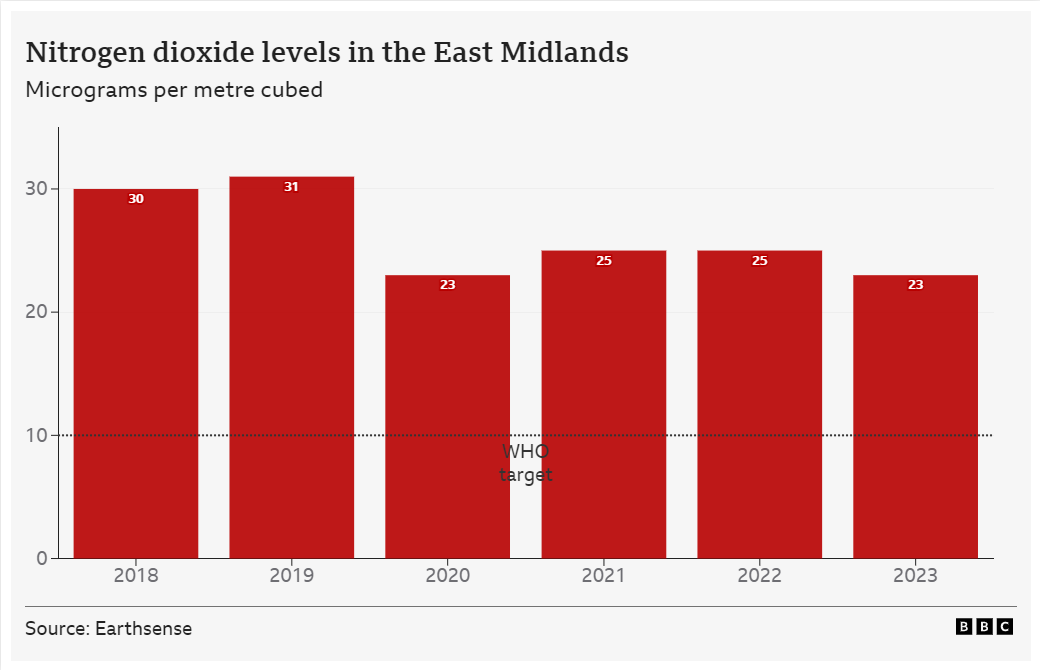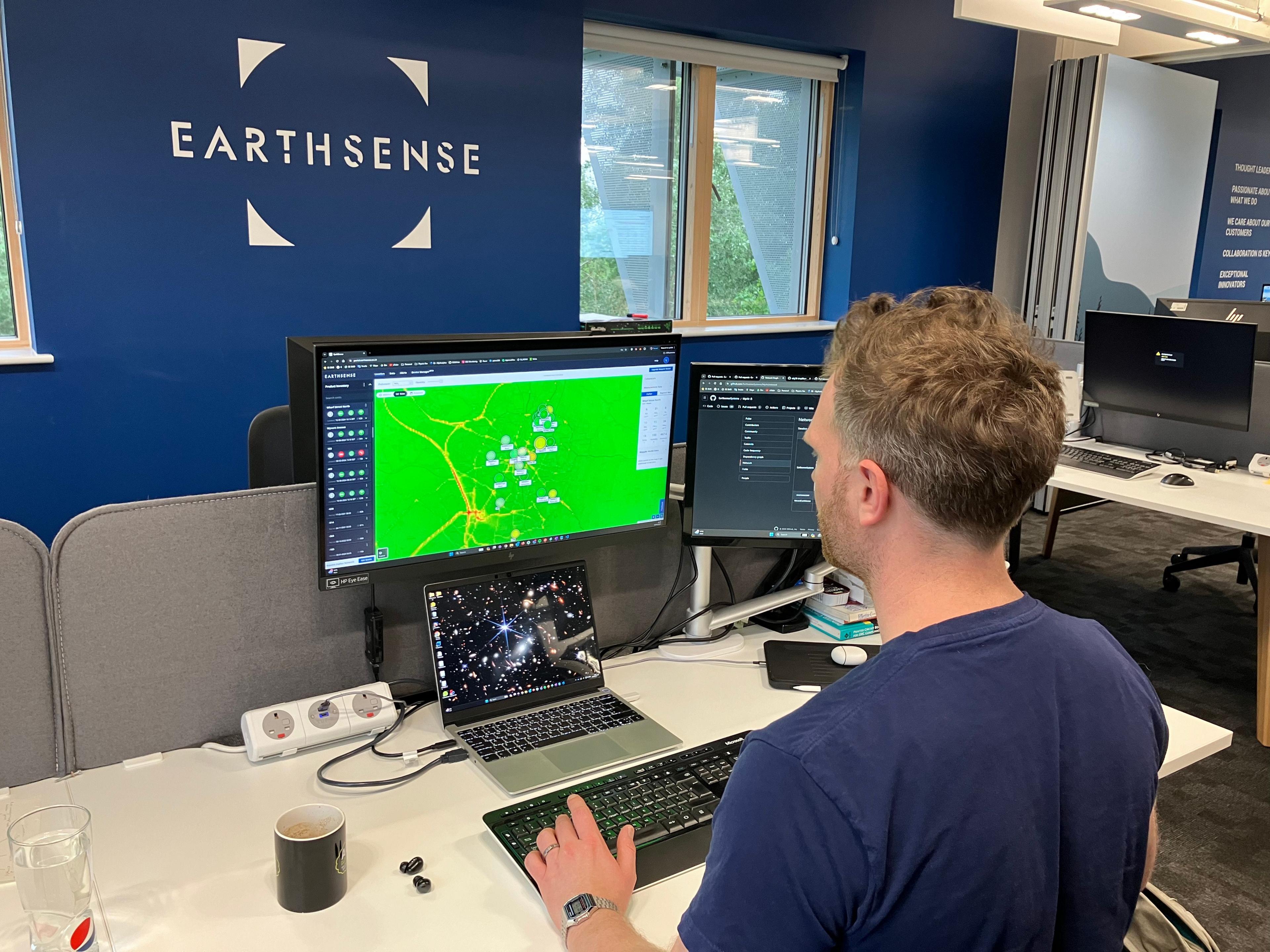Traffic in region returns to pre-Covid levels - data

Roland Leigh, chief technology officer at EarthSense, said pollution levels "fell significantly" in 2020
- Published
Traffic levels in the East Midlands have returned to pre-pandemic levels, according to new figures, but scientists say air pollution remains lower than before the first lockdown.
Department for Transport (DfT) data shows that over 19 billion miles were covered by vehicles in the region during 2019.
This dropped by more than 22% in 2020 but figures for 2023 show that traffic levels are now just 0.2% less than before the pandemic began.
However, scientists at EarthSense, based at Space Park Leicester, say the concentrations of key air pollutants have not returned to previous levels.
Roland Leigh, chief technology officer, said pollution levels went down "very significantly" in 2020 and that he could "see the difference" as fewer cars were on the roads.
EarthSense operates a network of thousands of sensors across the world measuring nitrogen dioxide levels - a toxic gas produced by traditional fuel engines that can create health problems for those exposed to it in high amounts.
Data from the network shows the average rate of nitrogen dioxide in the East Midlands has fallen from above 30 mg/m3 in the years before the pandemic, to the mid to low 20s.
Mr Leigh said: "They've gone back up again as we've all got back on the roads as we've started going back to work.
"We have reduced concentrations of key pollutants, such as nitrogen dioxide. They have not gone back to the pre-pandemic levels."

Nitrogen dioxide levels are still above the target set by the World Health Organization
He added drivers switching to electric or hybrid vehicles had had a "very significant impact" on pollution levels.
"In our cities in the East Midlands in particular," he said. "The transport emissions are a key part of that pollution picture.
"So, as we transfer to vehicles that don't produce pollution at the point of use, our pollution levels will decrease and the healthiness and cleanliness of our air will undoubtedly improve as electric vehicles are adopted.
"Things are improving very nicely. They're definitely on the right track but there's still requirements to try and make it better."

A team of about 20 staff at EarthSense monitor air quality around the world
According to the DfT data, traffic in Nottingham is 0.5% below the figures from 2019.
City councillor Angela Kandola said there had been a change in people's driving habits.
"Tuesday, Wednesday and Thursday are our busiest days," she added.
"Pre-Covid, Friday used to be our busiest day. Monday and Fridays are less busy, because people are working from home."
In Leicester and Derby, about 5% more miles were covered by drivers in 2023, compared to 2019.
Follow BBC Leicester on Facebook, external, on X, external, or on Instagram, external. Send your story ideas to eastmidsnews@bbc.co.uk, external or via WhatsApp, external on 0808 100 2210.